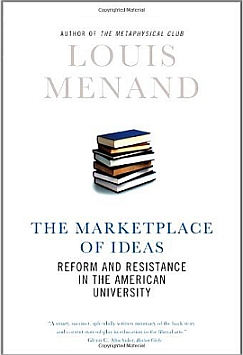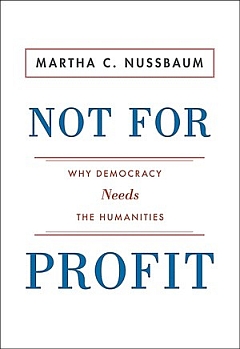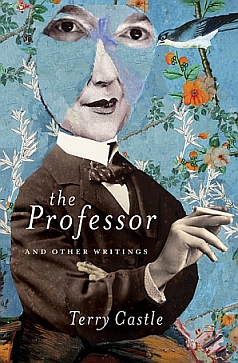- HOME
- INTRO TO THE FORUM
- USE AND MISUSE
- BADLY WRITTEN, BADLY SPOKEN
- GETTING
TO KNOW ENGLISH - PREPARING FOR ENGLISH PROFICIENCY TESTS
- GOING DEEPER INTO ENGLISH
- YOU ASKED ME THIS QUESTION
- EDUCATION AND TEACHING FORUM
- ADVICE AND DISSENT
- MY MEDIA ENGLISH WATCH
- STUDENTS' SOUNDING BOARD
- LANGUAGE HUMOR AT ITS FINEST
- THE LOUNGE
- NOTABLE WORKS BY OUR VERY OWN
- ESSAYS BY JOSE CARILLO
- A Unified Approach To The Proper Use Of Punctuation In English - II
- A Unified Approach To The Proper Use Of Punctuation In English - III
- Steeling Ourselves Against Common Subject-Verb Disagreement Pitfalls
- The Appropriate Way To Position Subordinate Clauses And Phrases
- Please Don’t Wish Me ‘More Power!’
- Let’s Say Goodbye To Those Irritating English Clichés
- ABOUT JOSE CARILLO
- READINGS ABOUT LANGUAGE
- TIME OUT FROM ENGLISH GRAMMAR
- NEWS AND COMMENTARY
- BOOKSHOP
- ARCHIVES
ADVICE AND DISSENT
This section features discussions on education, learning and teaching, and language with particular focus on English. The primary subjects to be taken up here are notable advocacies and contrary viewpoints in these disciplines and their allied fields. Our primary aim is to clarify matters and issues of importance to language and learning, provide intelligent and useful instruction, promote rational and critical thinking, and enhance the individual’s overall capacity for discernment.
Three notable books in defense of the humanities in education
In response to the accelerated dismantling of humanities programs across the world, strident calls have been made for a defense and rearticulation of the mission of the humanities in an age of neoliberal resentment. Three of the notable responses of the academic-professional world to this call came in the form of three books by American academics in the humanistic disciplines, namely The Marketplace of Ideas: Reform and Resistance in the American University by Louis Menand (Norton, 176 pages); Not for Profit: Why Democracy Needs the Humanities by Martha Nussbaum (Princeton, 178 pages); and The Professor and Other Writings by Terry Castle (Harper, 352 pages).



In “Why Bother?”, a review of these three books in Issue 11 of the literary magazine n+1, Nicholas Dames, associate professor in the humanities at Columbia University and a noted specialist in the novel, says that the authors seek to explain to students, parents, administrators, politicians, and to themselves why they do what they do, and why the teaching and study of the humanities is an important public good. Dames says that Menand, the historicist, reminds us of how we got here and of the attendant ironies of having done so; that Nussbaum, the ethicist, tells us where we should want to go and about the attendant dangers of doing so; and that Castle, in more intimate terms, elegantly performs the public service of articulating the claims of the humanities.
Read Nicolas Dames’ “Why Bother?” in the literary magazine n+1 now!
Read a review of Terry Castle’s The Professor and Other Writings in Salon magazine now!
Read an excerpt from Martha Nussbaum’s Not for Profit in Harvard Magazine now!
RELATED READINGS:
In “The Montessori Mafia,” an article he wrote for the April 5, 2011 issue of the online Wall Street Journal, Peter Sims says that the Montessori educational approach might just be the surest route to joining the creative elite, whose membership has a preponderance of such highly successful Montessori alumni as Google founders Larry Page and Sergei Brin, Amazon.com’s Jeff Bezos, videogame pioneer Will Wright, and Wikipedia founder Jimmy Wales. “Perhaps it’s just a coincidence that Montessori alumni lead two of the world’s most innovative companies,” Sims says. “Or perhaps the Montessori Mafia can provide lessons for us all even though it’s too late for most of us to attend Montessori.”
Read Peter Sims’s “The Montessori Mafia” in the online Wall Street Journal now!
In “How to Get a Real Education,” an essay written for the April 9, 2011 issue of the online Wall Street Journal, Scott Adams, creator of the highly popular “Dilbert” comics series, argues that B students should forget art history and calculus and learn how to run a business instead. Why make B students sit through classes designed for the brainy group who’ll become future professors, scientists, thinkers, and engineers? “That’s like trying to train your cat to do your taxes—a waste of time and money,” Adams says based on his own experience. “Wouldn't it make more sense to teach B students something useful, like entrepreneurship?”
Read Scott Adams’s “How to Get a Real Education” in the online Wall Street Journal now!
Click to read responses or post a response
View the complete list of postings in this section
(requires registration to view & post)







